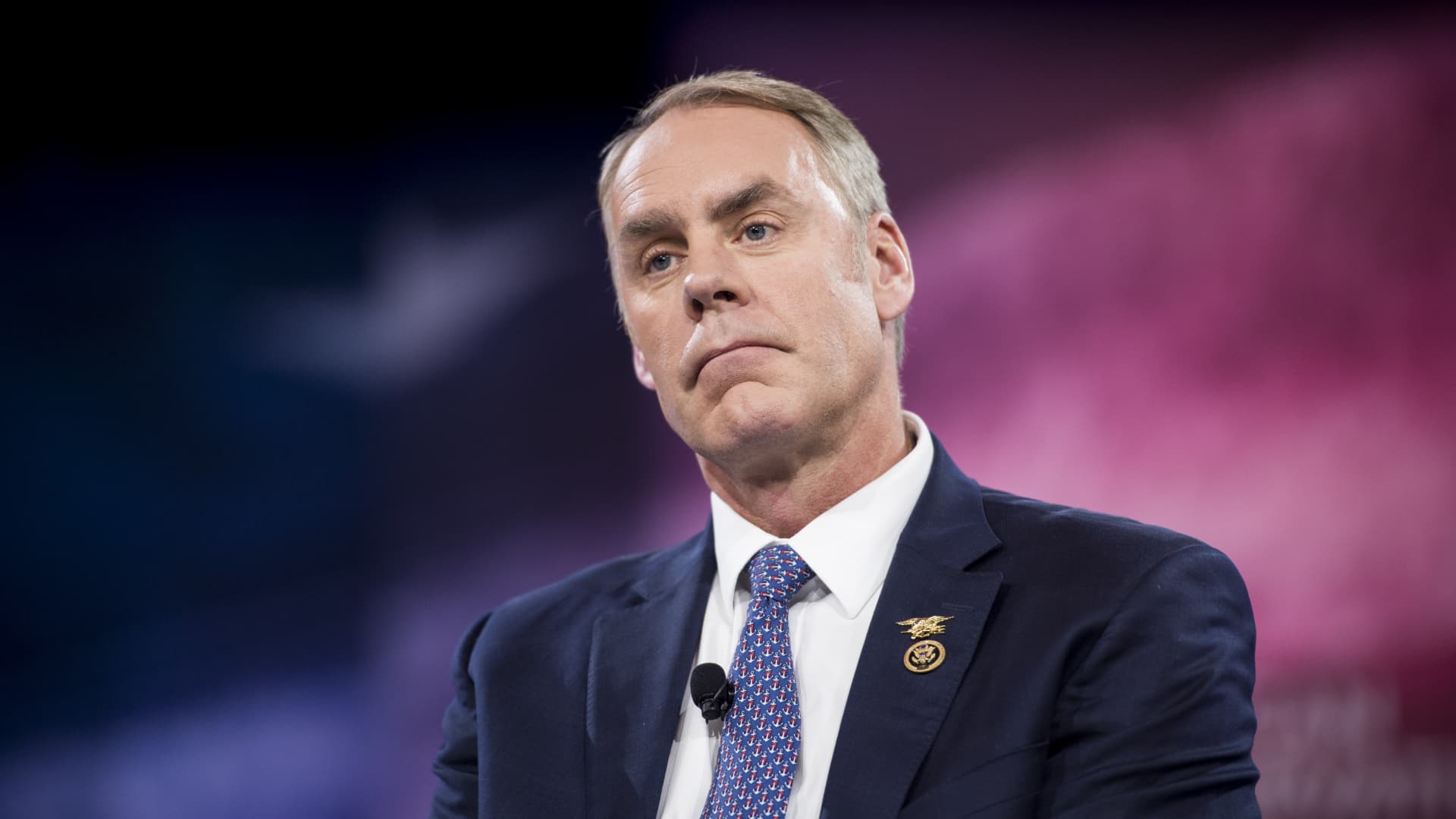Ryan Zinke, the Republican nominee for Montana’s new House seat, lied to the Interior Department’s internal watchdog during a probe of an tribal casino application while he led the department under then-President Donald Trump, according to an official report released Wednesday.
Zinke and his chief of staff “made statements to [Interior’s Office of the Inspector General] with the overall intent to mislead them,” the OIG’s report said.
“We found that both Secretary Zinke and the [chief of staff] made statements that presented an inaccurate version of the circumstances in which the [Interior Department] made key decisions,” the watchdog’s report added.
“As a result, we concluded that Secretary Zinke and the [chief of staff] did not comply with their duty of candor when questioned.”
Zinke’s alleged lies came in response to questions about his interactions with department lawyers and employees, a U.S. senator and lobbyists for MGM Resorts International. MGM, a casino operator, sought to block an application by two Native American tribes, the Mashantucket Pequots and the Mohegans, to jointly build and run a casino in northern Connecticut.
Zinke disputed the report’s findings. He unsuccessfully asked the Inspector General’s office to delay publicly releasing the report until after the November midterms, when he will be seeking to represent the western area of Montana in its new second House seat.
In a statement Wednesday, Zinke’s lawyer called the report and the timing of the release a “political smear.”
The watchdog’s findings come six months after another Inspector General’s office report found the House hopeful misused his position as secretary to promote a development project in his Whitefish, Montana, hometown.
Wednesday’s report said the Inspector General referred the casino issue to the Justice Department in 2018, when Trump and his attorney general were still in office.
The Justice Department declined to prosecute in the casino lobbying episode last year. It also chose not to prosecute in 2021 after it received the report about the Montana development.
The newly released report details how MGM Resorts International actively opposed the Connecticut tribes’ application in a lobbying effort targeting Zinke. MGM operates a casino just over the border in Springfield, Massachusetts.
MGM’s lobbyists specifically pushed Zinke not to approve amendments to the tribes’ existing gaming agreements with the state of Connecticut, the report said. Connecticut required those amendments in exchange for the state approving the casino, which would operate on nontribal lands.
Zinke ultimately sent the amendments back to the tribes without taking action, effectively stalling their plan.
He later told Inspector General investigators “more than 10 times that he relied on the Associate Deputy Secretary [of Interior] and the [department’s Office of the Solicitor’s attorneys] in making his decision to return the Tribes’ amendments without action,” the report said.
But those other people did not corroborate Zinke’s claims, according to the report.
An unidentified U.S. senator told investigators that he asked Zinke not to approve the tribes’ amendments in a September 2017 phone call. Zinke told investigators he did not recall the senator asking him to “take a particular stance,” according to the report.
“Based on our analysis of Secretary Zinke’s statements, we concluded that he provided a misleading portrayal of the basis for his decision to return the Tribes’ amendments,” the report said.
Zinke “repeatedly stated that he had not had conversations with anyone outside the agency —including the U.S. Senator or industry lobbyists — who advised him to take a different course of action,” the report said.
“Given the number and extent of communications with these outside personnel, combined with the absence of information that anyone — counsel or otherwise — within the agency advised this course of action, we find that Secretary Zinke’s description of events was not accurate,” it added.
In a statement emailed to CNBC on Wednesday, Zinke’s lawyer Danny Onorato said, “More than four years ago, Secretary Zinke cooperated fully in a politically motivated investigation conducted by the Interior Department’s Inspector General.”
“Secretary Zinke repeatedly told the Inspector General that he was not subject to any influence in that matter because he lacked jurisdiction to act on the application,” Onorato said. “That should have ended the inquiry. Instead, on the eve of an election, the IG has released a misleading and inaccurate report that suggested Secretary Zinke lacked candor in his interview with IG agents.”
“That is wrong,” the lawyer said. “The record here shows that it was the IG’s draft report that initially concealed dispositive evidence and that a Federal Judge in Washington D.C. agreed that Secretary Zinke’s position was legally sound. After Secretary Zinke objected to a draft report, the IG now acknowledges this critical fact in watered down fashion.”
“Put simply, Secretary Zinke was completely candid in his interview and was legally vindicated by the Court’s decision. The content of the IG report and the timing of its release will be seen for what it is, another political smear,” Onorato said.
